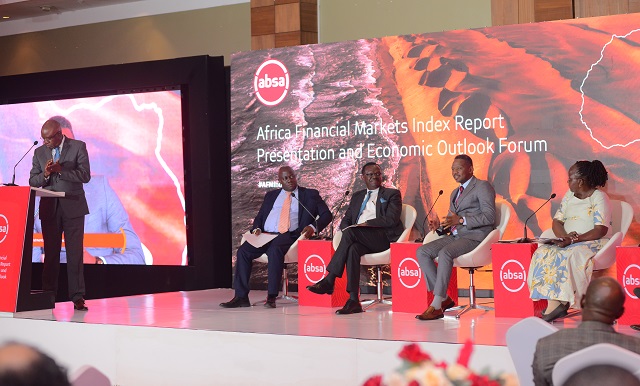
In the dynamic landscape of global finance, staying informed about the pulse of financial markets is imperative for businesses, especially local brands striving to make a mark across the continent, and as Publicist East Africa, in partnership with Brand Africa 100, we have the responsibility to inform industry players about available opportunities for investment across the continent.
Recently, the Absa Bank released the Africa Financial Markets Index (AFMI) 2023 which stands as a beacon of insight, offering a comprehensive assessment of financial market development across Africa. While traditionally seen as a resource for policymakers and investors, local brands can also leverage the AFMI report to navigate opportunities and fortify their positions in the marketplace.
Understanding Market Dynamics
One of the primary benefits of the AFMI report for local brands is gaining a deeper understanding of the financial market dynamics within their operating environment. By examining factors such as market depth, regulatory frameworks, and access to capital, businesses can identify areas of strength and weakness. Armed with this knowledge, local brands can strategically position themselves to capitalize on favorable market conditions and mitigate risks associated with volatile or underdeveloped financial markets.
Access to Capital
Access to capital is vital for the growth and expansion of local brands. The AFMI report provides valuable insights into the accessibility of capital within different African markets. By assessing metrics such as credit availability, ease of doing business, and investor confidence, businesses can identify regions where securing financing is more feasible. Armed with this information, local brands can tailor their financial strategies and seek out opportunities for funding partnerships or investments that align with their growth objectives.
Risk Management
Navigating financial markets inherently involves risks, but the AFMI report equips local brands with the tools to assess and manage these risks effectively. By examining indicators related to market transparency, regulatory environment, and legal frameworks, businesses can identify potential risks and implement risk mitigation strategies. Whether it’s currency volatility, regulatory changes, or geopolitical instability, the AFMI report empowers local brands to anticipate challenges and proactively safeguard their interests.
Strategic Expansion
For local brands eyeing expansion beyond their borders, the AFMI report serves as a strategic roadmap. By evaluating metrics such as regional integration, cross-border trade, and economic diversification, businesses can pinpoint regions with favorable market conditions for expansion. Whether it’s tapping into emerging markets with high growth potential or leveraging regional trade agreements, the AFMI report provides valuable insights to inform strategic expansion initiatives and capitalize on new opportunities.
Enhancing Investor Confidence
Investor confidence plays a pivotal role in attracting investment and fostering growth for local brands. The AFMI report serves as a barometer of market confidence, offering insights into investor sentiment and perceptions of market stability. By showcasing the strengths of local financial markets and highlighting areas of improvement, businesses can enhance investor confidence and attract investment capital to fuel their growth ambitions.
Investment opportunities
Although progress has not been uniform, according to the report, scores have risen for the majority of AFMI countries. They increased in 15 countries largely due to an improvement in market transparency, particularly a rise in the number of credit ratings, which boosts scores in Pillar 3. Most countries also score higher in Pillar 5 as macroeconomic conditions have generally stabilized following shocks from the pandemic and the Russia-8kraine conflict.
Among the biggest improvements in the overall score were Zimbabwe and Rwanda, rising by almost 2 points each, linked to progress in building sustainable financial market frameworks. Zimbabwe has added climate risks to financial stability regulation while Rwanda is working with multilateral organizations to improve market standards for green investments. Overall, 20 AFMI countries now incorporate environmental, social, and governance-linked financial policies, which can help to mobilize new investment.
There have been other encouraging initiatives across the continent. Survey respondents in nine AFMI countries mentioned measures for improving central security depositories to enhance efficiency. New assets are becoming available on domestic exchanges, including the first sukuk bonds in South Africa and Tanzania.
Therefore, local brands can confidently tap into the opportunities above to grow their portfolios.
In conclusion, The Publicists East Africa and Brand Africa 100 targets a diverse audience that includes various stakeholders and individuals interested in understanding and assessing the brands and their perception in Africa.

